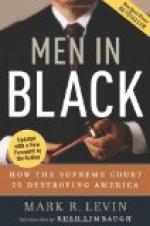From a decision of this kind there is also a right of appeal which may result in a reversal. Then the new jury is impanelled, the witnesses are recalled, and the proceedings are gone over once more. If the decision or judgment is affirmed, the case does not usually come up again; the higher court has said the plaintiff has no case on the evidence, and unless new evidence is produced he can never recover. In certain accident cases the appellate courts have stated they would not give their reasons for dismissing the complaint after the evidence is all in because, they say, if they did so they were afraid the plaintiff would supply the missing links by manufactured evidence on the next trial and not quite honestly. This again is a commentary on procedure.
Just at this point is where the law of the case comes in so insistently. Before the case comes to court the lawyer is supposed to know whether his client has a right of action. Every state of facts or a breach of those rights does not give rise to an action that can be maintained in a court of law. If you ask a man to dinner and he accepts, but does not come, you can not recover your damages for providing the dinner; or if you fall down your own well, you can not sue the man who built it. The lawyer is supposed to have carefully considered what elements of fact make an action. If the facts themselves do not give him a right of recovery his case is dismissed; or if he has a cause of action but has not proven the facts, it is also dismissed.
But as was said above, if the train of facts or those in the pleading is imperfect, the modern spirit is to allow them to be made perfect. The only theory of law that is contrary to this spirit is what is known as the theory that every man is entitled to his day in court and the day being had it is unfair to bring the other side in again on account of some defect or forgetfulness on the part of the other.
The reconciliation is that there should be no surprises on a trial, the modern tendency is to bring the case away from the idea of an ordeal by battle. The little advantages that are gained by sorties and surprises and which are usually taken advantage of by motion, are after all not of great moment.
An anomalous situation shows the absurdity of these motions, for when the plaintiff rests, unless the defendant makes a motion to dismiss the plaintiff’s case, he is supposed to admit that the plaintiff has made a good prima facie case, and if he does not move he is forever after, on appeal or otherwise, prevented from claiming that the plaintiff did not make out a good case. The result is that at the close of the plaintiff’s case the motion is usually made as a matter of form to preserve the defendant’s right.
Usually this motion is denied if there is a possibility of making a case, but suppose the judge either through ignorance or to be obliging should say, “Well, the plaintiff has made out a good case, but if you ask it, the blood be upon your own shoulders, and I will dismiss the case.” The defendant does not want it dismissed but he has asked for it and he has got what he asked for. The result is an anomalous situation. The case will undoubtedly be reversed and he will be mulcted in costs for being compelled to ask, because of the formalism of the court procedure, for what he did not want.




